|
“Then Jesus said to His disciples, ‘If anyone wishes to come after Me, he must deny himself, and take up his cross and follow Me. For whoever wishes to save his life will lose it; but whoever loses his life for My sake will find it’” (Matthew 16:25). For about three months, culminating on Easter Sunday, I took part in a spiritual program for Catholic men focused on prayer, ascetism, and fraternity. During this program, men ‘unplug’ from the world, deny themselves, and live in a specifically intentional way for the Kingdom of God. This journey requires men to participate in fraternity with other men, read Scripture and reflections each day, spend at least 30 minutes in prayer with the Blessed Sacrament, and then other things, including: no social media, no computer or phone if not for work or other mandatory tasks like paying bills, taking a cold shower every morning, no sweets, no snacking between meals, no alcohol, getting at least 7 hours of sleep each night, no watching sports, and fasting and abstaining from meat every Wednesday and Friday. This is a journey through the Book of Exodus alongside Moses and the Israelites as they escape slavery in Egypt and learn how to live in true freedom in the Promised Land. The Book of Exodus is a brilliant metaphor for the modern man, called to a freedom rooted in the ability to choose the good for the sake of God and His Kingdom as opposed to a having a ‘false freedom’ and being a slave to desires and passions. Receiving screen time reports on my iPhone each week made me realize how much of a slave I am to my cell phone – to social media, to sports, to instant gratification. I desired to free myself from my phone in a radical way, which this program helped me achieve. This is just one example of how this journey invited me to restructure my day and rid myself of lazy habits. This journey was hard: the first few weeks were hard; the last few weeks were hard. I wasn’t perfect at maintaining all of the disciplines of the program. I can recall starting the cold water for the shower in the morning and letting it run for 5 minutes trying to pump myself up to jump in. This happened many times. But after 3 or 4 weeks, I was jumping right in. The old adage is true: First we make our habits, then our habits make us. The more we exercise true freedom – denying ourselves and making choices that counter our desire for comfort – the easier it is to live in freedom. Feeling much more liberated, I still do not have any social media apps on my phone, I take a cold shower from time to time, and prayer time is a staple of my daily routine. Making these types of continued choices is not easy, and that is why participating in community with the Body of Christ – much like the disciples did— is essential to continued spiritual growth. Though each choice and discipline of this program is deeply personal, a community of like-minded men working through the same disciplines in their own right was a crucial element of this process. This community allowed me to give and receive motivation and encouragement and ensured that the disciplines were being completed in a physically and spiritually healthy way. This is why the Church, in her wisdom, has encouraged the formal development of many religious communities – such as the Dominicans, Franciscans, and Pallottines. I believe this is also why the Church today is stressing Collaboration and Co-Responsibility in ministry. The journey to heaven is not one that should be walked alone. I would encourage you, in whatever spiritual journey you undertake for God and his Kingdom, to do so in community. Question for Reflection: Have you ever participated in a spiritual program, conference, or retreat that had a positive impact on your faith?
0 Comments
A little more than three years ago, I was asked to be the coordinator of my parish’s youth group. I had just begun college and taking on such a big responsibility seemed terrifying - it felt like I was trying to climb a very tall mountain and the top seemed impossible to reach. As I started this new position, I noticed that my group lacked organization, teen attendance, and the presence of trust because they did not know me as their leader. Working to create a semblance of routine and structure to use every Friday afternoon was probably the easiest thing to do, but attendance and building trust would need more work. We had about 4 teens that were committed to attending youth group every Friday. I asked myself, “How am I going to get more teens to attend? Where do I find them?” Another important question I asked was, “What will make them want to come back next Friday?” So, I got to work and created social media accounts under the group’s name to get the word out about our meetings. I spoke to the prayer group for adults that would meet at the same time and asked them to bring their teens to our group instead of leaving them at home. With a lot of prayer and thought, I realized that what these teens were lacking was an encounter with Jesus, so I would focus my talks on God the Father, Jesus, and the Holy Spirit. I also focused on doing group prayers where the teens had the opportunity to speak to God. As stated in Living as Missionary Disciples, “An encounter with the Lord brings about a profound transformation in all who do not close themselves off from him” (LMD 11). I witnessed this firsthand. Many teens started to come and seemed hungry to know more about God. Then came the third task: building trust. I noticed that these teens desperately needed someone to trust and wanted to be heard. Many times, we think that a young person has the perfect life. Most of these teens’ parents provide everything for them, including shelter, food, and clothing. It’s easy to think that all they do is go to school during the day and help around the house with a few chores. In reality, this isn’t true. I’ve come to learn that many of these teens experience peer pressure at school, have problems at home, and are constantly being bombarded with impossible standards on social media. The teens needed someone to walk next to them and listen to them. As Living as Missionary Disciples states, “The response to this encounter with Christ needs accompaniment” (LMD 14). The teens needed someone that would not judge them but instead be there for them. They needed to be able to be themselves and feel accepted the way they are despite their past or where they are now. As Living as Missionary Disciples also says, “We are not called to make judgements about others.” (LMD 15) Three years later, I have finished this pastoral ministry journey. I learned so much from the teens, such as the importance of having a personal encounter with God and the importance of accompanying the members of your ministry. Some tips I have for a pastoral minister include valuing the importance of constant prayer and regularly asking the Holy Spirit to come upon the ministry and give a vision of where to go and where to take the ministry. It’s also important to be able to recognize the needs of your community or within the demographic with which you are working and to be able to address those needs. There should also be a balance of “church work” and a healthy personal life. I personally lacked this balance and burned out, which led me to give so much and not take the time to give back to myself. Taking these measures will prevent the minister from burning out and help him or her be able to give more in the long run. For more tips on self-care visit our Self-Care for Healthy Ministry resource page. When I was younger, I often found myself scandalized by the actions of other people. I grew up with a very legalistic morality which sees rules and laws as black and white imperatives. On the one hand, there is a benefit to seeing the value of rules and laws which—when just—help to guide society in the right direction. On the other hand, a legalistic morality fails to see others with eyes of compassion and mercy, the same eyes through which Christ sees humanity and through which he asks us to see as well. When we see people as a compilation of their successes and failures, we do not see the whole person and only focus on what they have done or failed to do. This mindset was often exemplified by the Pharisees who clashed with Christ, as demonstrated in the story of the woman caught in adultery. When the Pharisees brought this woman before Jesus, they did not expect him to respond with compassion. In this passage, the Pharisees and scribes remind him that the law of Moses commands her to be stoned. In response, “Jesus bent down and began to write on the ground with his finger,” and said, “Let the one among you who is without sin be the first to throw a stone at her” (John 8:1-11). Christ reminds us to see with eyes of compassion, but also provides a mirror with which to examine ourselves and our own sin. This is not the only time that Jesus presents us with this challenge. In the Gospel of Matthew, he says, “How can you say to your brother, ‘Let me remove that splinter from your eye,’ while the wooden beam is in your eye? You hypocrite, remove the wooden beam from your eye first; then you will see clearly to remove the splinter from your brother’s eye.” In both cases, Jesus invites those listening to a profound self-examination that leads to conversion rather than self-righteous judgment. In the story of the adulterous woman, we learn that Christ does not allow us to continue wandering aimlessly in our sin but gives us a new directive: “go and sin no more.” The eyes of compassion with which God sees us, and through which we are called to see others, are not blind. Compassion does not mean that we can do whatever we want even if it is detrimental to ourselves, others, or our relationship with God. What God is asking of us is a contrite heart that continually returns to his infinite love. When we sin, we separate ourselves from our neighbor, from God, and from the depths of his infinite love. When Christ says to sin no more, as he did to the woman caught in adultery, he is also telling us to love more fully. To see with eyes of compassion sees this reality and doesn’t mistake our sin as simply breaking a rule. Eyes of compassion allow us to walk with the other person and be walked with ourselves in order to overcome the sins that weigh us down. Today, let’s choose to look with the eyes of compassion and mercy as we strive to follow Christ’s call to “go and sin no more.” “The Advocate, the Holy Spirit…will teach you everything.” -John 14:26 After two years of dedicated study of theology, I received my Master’s degree. This has always seemed a bit odd to me, because I often feel I still have so much to learn. This seems like the case for Jesus’ followers as well. After 3 years of discipleship, they didn’t know “everything.” Though they could be considered the “masters” of Christian life–having spent three years walking alongside Jesus—Christ tells them they still need the Holy Spirit in order to learn “everything.” He was explaining to them a fundamental reality of the Christian life: it is a life-long process of learning. This reality is sometimes daunting, but more often it is comforting. The men that spent three years at the feet of Christ, who witnessed His miracles, heard His parables, and encountered Him after His resurrection, didn’t have it all together. They were not perfect at discipleship and they still needed God, who would now be revealed to them in the indwelling of the Holy Spirit. Rather than spending physical time with Christ, they would experience something even greater: God dwelling within them. This intimate and powerful presence of God is something we can experience today. We receive the indwelling presence of the Holy Spirit on the day of our baptism and physically receive Christ Himself every time we partake of the Eucharist. Furthermore, Christ tells us in this Sunday’s Gospel that He and the Father will dwell within those who keep His word. This comforts me because I have never heard Christ’s voice, seen His face, or shared His food. Though I am generations and millennia removed from Him, He has sent the Holy Spirit to teach me “everything”—what it means to follow Christ and live the Gospel today. Much like the disciples, I still have much to learn. Though I have grown up knowing about Christ and His teachings, though I have figuratively sat at His feet for more than three years, I still need the Holy Spirit to teach and remind me what it means to be a follower of Christ each day. And in order to cultivate the indwelling of the Holy Spirit, I must continue to keep Christ’s word. This is so much more than the study of theology. As Pope Francis said in a 2015 homily, "We can study the whole history of salvation, we can study the whole of Theology, but without the Spirit we cannot understand. It is the Spirit that makes us realize the truth or – in the words of Our Lord – it is the Spirit that makes us know the voice of Jesus." Learning everything, therefore, means knowing and discerning the voice of Jesus. A life of keeping Christ’s word looks different according to your vocation or status in life, but overall, some things that help us recognize Christ’s voice include an active sacramental life, daily prayer, acts of charity, reading Scripture, and living according to Church teaching. In the nitty gritty of every day, this could mean keeping your cool while driving in rush hour traffic, taking a meal to a family with a newborn, participating in the Sacrament of Reconciliation regularly, giving your spouse the benefit of the doubt, going to Mass each Sunday, or taking a deep breath when your child throws his food on the ground for the third time that day. It could mean reading the daily readings at the breakfast table, praying evening prayer with your roommates, starting a rosary on your commute, participating in a weekly Bible study. In short, keeping Christ’s word is a lifelong, daily decision to do things that bring you closer to Him and encourage you to hear His voice. As we prepare to celebrate Pentecost in a few weeks, let us call upon the Holy Spirit to be our Advocate and Teacher. May we have the humility to call upon Him daily as we pursue this lifelong life of discipleship in order to truly hear the voice of Jesus that says, “Come, follow me.” Every year, on the Fourth Sunday of Easter, we hear a Gospel passage about Jesus, the Good Shepherd. On this day, the Church also invites us to prayer and reflection on vocations as part of the World Day of Prayer for Vocations. In his 2019 Message for this day, Pope Francis offers a significant consideration for all those involved in Church ministries:
“Dear friends, it is not always easy to discern our vocation and to steer our life in the right direction. For this reason, there needs to be a renewed commitment on the part of the whole Church – priests, religious, pastoral workers and educators – to provide young people in particular with opportunities for listening and discernment. There is a need for a youth ministry and a vocational promotion that can open the way to discovering God’s plan, above all through prayer, meditation on God’s word, eucharistic adoration and spiritual accompaniment.” The Synod on Young People, the Faith, and Vocational Discernment reflected on this theme which resulted in both the Final Document of the Synod and in the Post-Synodal Apostolic Exhortation, Christus Vivit, offering important insights that can help not only those in Church ministries, but all to accompany young people in their vocational discernment and then to live that vocation well once they have come to know where Christ is calling them. St. Vincent Pallotti, whose 201st anniversary of ordination to the priesthood is today, understood well how to accompany young people in their vocational discernment. He was a sought-after spiritual director and confessor who went to all, especially young people, where they were. He provided many opportunities for both youth and young adults – lay (single and married), religious, seminarians, and priests – to deepen their encounter with Christ, grow in holiness, and live their call from him as an apostle. Pallotti’s witness of holiness of life and example of faith, particularly though his works of charity, inspired all who knew him to live more fully for Christ. Today, his approach offers us an example of what Pope Francis describes in Christus Vivit, n. 242: “Young people need to have their freedom respected, yet they also need to be accompanied.” May the Charity of Christ urge us on! For more resources on Vocational Discernment, please click here. Today is the feast day of St. Matthias, the only Apostle not chosen directly by Christ. We know from the Acts of the Apostles that after Christ’s Ascension, Peter stood before a crowd of disciples and declared that they needed to choose a disciple to replace Judas the betrayer in order to restore the number of Apostles to twelve. They chose two men who had followed Christ since his baptism, drew lots, and the lot fell to Matthias. Thereafter he was included among the twelve apostles. Beyond this brief mention, there is nothing conclusive known about St. Matthias—nothing about where he went to preach the Good News or whether he was martyred or where he died.
Minor figures in history have always piqued my interest—especially those who are barely mentioned but who nevertheless mattered enough to get mentioned at all. And St. Matthias, as a minor but thought-provoking figure in the New Testament, has always intrigued me for two main reasons. First, he reminds me of the dozens of followers of Christ who never get face time in the Gospels. After the Ascension, at the gathering when Matthias was chosen to be the twelfth Apostle, there were well over a hundred people in attendance. And out of that crowd there were several men who had followed Christ from the beginning—men whose names and occupations we will never know, but who, like Matthias, embraced Jesus’ mission and accepted even the most difficult of His teachings. They might have gone on to be martyred in the persecutions of the early Church or they might have only brought Christianity to their loved ones and neighbors as they quietly lived out their ordinary lives. The unnamed disciples, from whom Matthias was chosen, remind me that most of us are called to be the same—historically insignificant followers and witnesses of Christ whose lives may not be recorded in history books but whose work is more important than worldly accolades and technological advances. The second thing I find interesting about St. Matthias is that his role among the Twelve could not have been easy for him to assume. Surely no one doubted Matthias’s loyalty to Christ, for Matthias had followed Him from the very beginning and had never been put off by any of Christ’s actions, as so many others had. But Matthias was suddenly elevated from a regular disciple to a leadership position; was that something he was prepared to take on, or did he feel out of his depth and intimidated by the Eleven, unworthy to be counted among men who had had such an intimate relationship with Jesus? Did the Eleven embrace Matthias as one of them immediately, or was there some friction because, although he was now counted among the Twelve, he had not had the same experiences of Christ’s earthly ministry? Was it difficult for Matthias to be replacing the one who had betrayed Christ—did he feel that he needed to prove himself? The Bible makes no mention of St. Matthias protesting his selection—He presumably embraced the burden and honor of the role given to him under the guidance of the Holy Spirit. If I had been in Matthias’s shoes, I probably would have been reluctant to accept such a role of leadership in the fledgling Church, and I certainly would have wanted to prove myself somehow better or more worthy than my predecessor. St. Matthias must have known the difficulties inherent in becoming the twelfth Apostle. He was effectively making himself a target for the enemies of Christianity, he was pledging himself to a difficult life of evangelization, and he would be leading alongside men who had known Jesus better than he ever had. Matthias must have known that his chances for suffering would greatly increase if he accepted God’s will; I know in my own life, I sometimes avoid doing things I am called to do because I can see that the graces I receive will come with a period of struggle or suffering—mentally, physically, emotionally, or spiritually. Especially on his feast day, I think most of us can reflect on how we could strive to be more like St. Matthias: we are all capable of greatness – if only we could follow Christ and accept what is asked of us without question. Two forces have particularly influenced my life. The first is my Catholic faith – given by my parents and nurtured by others as I grew. The second is my adulthood experience with obsessive-compulsive disorder (OCD). In wrestling with both of these forces (at times feeling like Jacob, who wrestled with God), I accidentally discovered a saint whose experiences reflected my own. Saint Dymphna lived in Ireland during the seventh century, after the time of Saint Patrick, Saint Brigid, and Saint Columba. Christianity was practiced by many – including Dymphna’s mother, who had her daughter secretly baptized. Dymphna’s father was a pagan king named Damon. Dymphna’s mother died when Dymphna was just 15 – throwing her father into a terrible grief. Damon’s counselors advised him to remarry, and though they searched for another wife, they found none. They then advised Damon to marry his daughter, who reflected her mother’s great beauty. Initially repelled, Damon eventually agreed and proposed to his daughter. Under the guidance of her confessor priest, Saint Gerebran, Dymphna rejected her father’s proposal, and fled Ireland for Belgium. Tradition states that Dymphna then built a hospice in Geel for the sick and the poor, where she remained for some time. Soon, Damon and his men traced Dymphna’s journey, and ascertained her whereabouts due to Dymphna’s use of foreign currency. Confronted by the mad king, Saint Gerebran rebuked his behavior, and Damon had his men kill the priest. Still hoping to win his daughter, Damon then pleaded kindly, offering wealth, prestige, and honor. Dymphna, steadfast in her vow of chastity, rejected the offer – and by her own father’s sword was beheaded. Soon after Dymphna’s martyrdom, several “lunatics” spent the night in the countryside where Dymphna died, and woke up in the morning healed. This miraculous place became known throughout Europe: a church was eventually built in the 1300s, with a sanctuary expansion built to accommodate pilgrims seeking mental relief. Townspeople themselves even began taking them into their homes, a tradition that continues to this day. Saint Dymphna entered my own life in a chance way seven years ago, near the onset of my OCD symptoms – which involved uncontrollable obsessions and time-consuming “checking” behaviors. Around this time, I discovered in my bedroom a prayer coin invoking Saint Dymphna. I do not recall where this coin came from – and I certainly had never heard of Dymphna before. But the prayer on the back captured me: “Oh St. Dymphna, Patroness of nervous and mental illnesses, grant that, through prayer, I may be pure in mind and soul.” Fascinated by her story and her Irish identity, I began to read, learn, and ask in prayer for her help. This relationship deepened and developed into my own pilgrimage to St. Dymphna’s church in Geel – which was closed when I reached Belgium! Nevertheless, she has continued to inspire my journey from OCD sufferer to OCD advocate, and I am more convinced than ever that she is a great intercessor and resource in our current Age of Anxiety. Below are some brief meditations on Dymphna’s continued influence on my life: 1. Dymphna kept faith even in grief. We all know how grief challenges our faith. Not only did Dymphna lose her mother, but she also had to tread the impossible tightrope of consoling her father while recognizing that his sickness was warping him. This must have torn at Dymphna’s heart. Yet even amidst suffering, she did not stop hoping in God’s providence. In my own life, losing my brother six years ago in an accident severely challenged my faith in God. During this time, I believe Saint Dymphna’s help guided me back to a place of trust and hope. 2. Dymphna chose the path of unknowing and vulnerability. By fleeing to Geel, Dymphna took a major-league risk and rejected the familiarity of her native land. Yes, she was momentarily safe from the king – but incredibly vulnerable as a foreigner and refugee. In many ways, staying home and appeasing her father would have been the “safe” choice. OCD constantly tempts me with gaining “safety” at the cost of doing ridiculous compulsions. While it’s terrifying to reject what OCD wants me to do (“Think hard enough and you’ll have peace!”), I have to respond by saying, “I’m willing to be anxious and unknowing, so I can live a real life.” That Dymphna, Patroness of mental illness, was beheaded, indicates to me that I must abandon relying on my brain, and embrace God and that which I cannot see or “figure out.” 3. Dymphna perfected her own authority and freedom to choose. In standing up to Damon, Dymphna inspires all of us who face temptation and all who face oppression from those who misuse their power. Not only did Dymphna preserve her vows of chastity, but she also avoided another, potentially graver misstep – the acceptance of a false crown, that is, her mother’s rightful crown. The choice to be independent is terrifying. The story of Dymphna, however, shows true independence is possible, through faith in God who desires our freedom from sin and from oppression. With God’s help we may learn to abandon the perceived “safety” of acquiescing to the soul-stealing machinations of tyrants (even the tyrants in your own mind), at which time the opportunity for freedom, originality, generosity, charity, and creativity arises. Questions for Reflection: What false crowns have you been offered in your life? What powerful proposals have been extended at the cost of your authority and freedom to choose? There are few sights like a church on fire. The fire which raged from the roof of the Cathédrale Notre-Dame de Paris on the evening of April 15, 2019 was different: thanks be to God that it (at this time of writing) does not appear to be caused by anything more than renovation negligence and that no one was killed in the blaze. The evening of the fire, the attention of the world focused on the smoke billowing above the Parisian skyline as first responders battled the flames to save the most iconic church in France. In the scenes broadcast from the River Seine, I not only saw the intensity of the fire that toppled the historic spire, but I also observed the more subtle fanning of the embers of a faith long thought to be extinguished in the hearts of the French people.
Watching a tragedy stirs up strong emotions within even the most hardened of hearts. Many scenes of prayers being offered or sacred hymns being sung—despite perhaps intense feelings of helplessness—were reported by passers-by, pilgrims, and tourists alike. Furthermore, support was expressed around the world for the Church and her members in France. The sight of the beautiful cathedral of the capital city apparently being irreparably damaged was a very sad one indeed, especially during Holy Week. The many treasures at risk included the Most Holy Eucharist and relics of Christ’s Passion. Different people took different meanings from that incredible sight: many were shaking their heads and crying at the destruction of a landmark cultural icon, others mourned the apparent loss of a grand local spiritual refuge, and some saw a Church which has long suffered against secularism appear in danger of collapse. Here’s what I observed: seeing a church burning on live television is indeed a heart-stopping scene, but I am—and dare I say God is—more interested in seeing hearts burn within a person! Seeing a man fully alive and in touch with his values, faith, or beliefs rather than suppressing them when inconvenient or unpopular is inspiring and a great witness. The voices of the people in Paris were publically lifted in singing ancient hymns and prayers for the salvation of the physical church building and the Catholic Church overall. Secularism has long been taking root in France, so seeing this active and public embrace of faith was incredibly touching. In times of despair or tragedy, people have been historically observed to seek sanctuary and emotional healing in churches and places of worship. Just think of cities in Europe, at risk of invasion or disease, in which people flocked to pray together for deliverance or divine mercy. Even in the United States after 9/11 and other heinous acts of violence, the churches with formerly empty pews were crowded with voices raised together in hopeful prayer to counter bowed heads of sorrow. As Christians we do not mourn like those who have no hope, but even in our sadness we can lift our eyes to God, breathe to calm ourselves, and confidently pray, “Speak, Lord, for your servant is listening.” From these collective acts of faith, the hope of spiritual renewal can be strong. The seeds of faith instilled in youth but unnourished later in life may suddenly be rediscovered and re-cultivated by God’s grace and perhaps the shock of the sudden end of the status quo. Intense personal reflection and the reevaluation of priorities may ensue to further sustain spiritual growth and comfort. Imagine the state of the Church had the apostles not been inflamed with the indwelling of the Holy Spirit at Pentecost. Just as those followers of Christ rediscovered God in the Upper Room thousands of years ago, so too can we encounter the fire of the Holy Spirit to bring light to the confused, healing to the broken, and peace to the conflicted. The fires of faith have not been extinguished, as we have beautifully seen, but rather the embers are still hot and glowing, just needing to be stirred up again to blaze towards Heaven. As Pope Francis tweeted, let us “unite in prayer with the people of France, as we wait for the sorrow inflicted by the serious damage to be transformed into hope with reconstruction. Holy Mary, Our Lady, pray for us.” May Notre-Dame, our Blessed Mother, pray for us! |
Details
Archives
July 2024
Categories
All
|
About |
Media |
© COPYRIGHT 2024 | ALL RIGHTS RESERVED

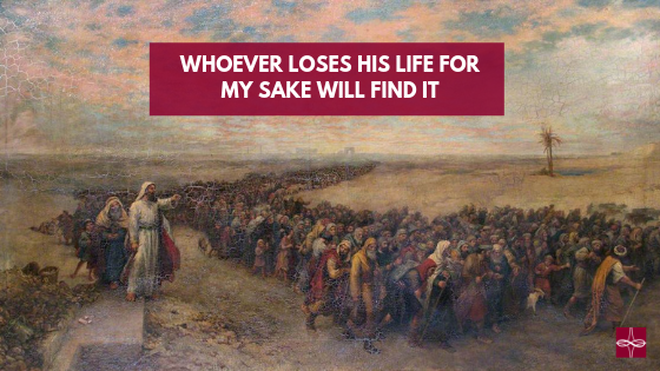
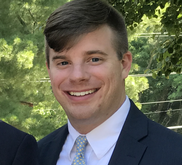

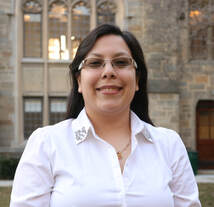
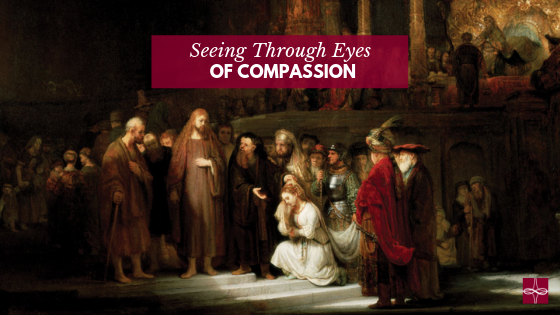

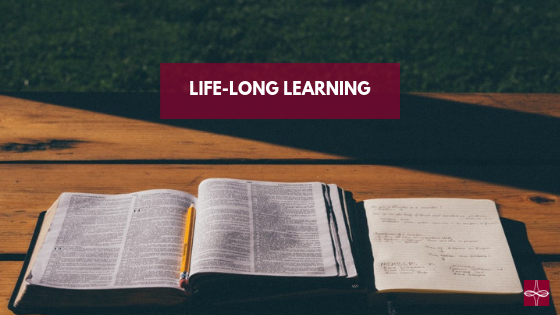

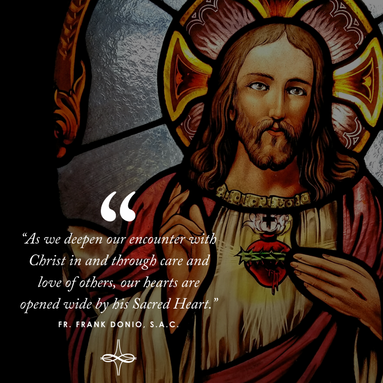
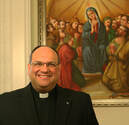
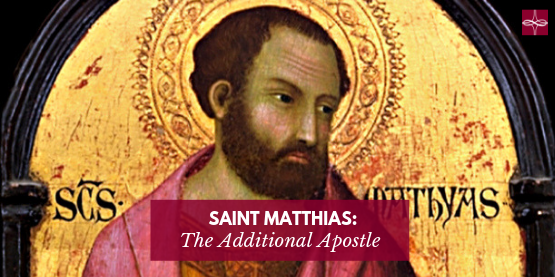

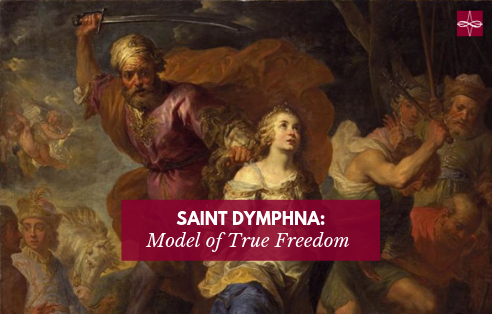

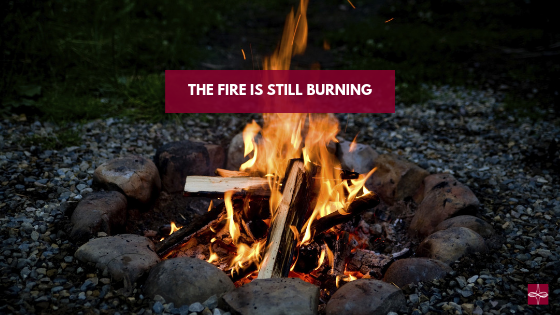

 RSS Feed
RSS Feed